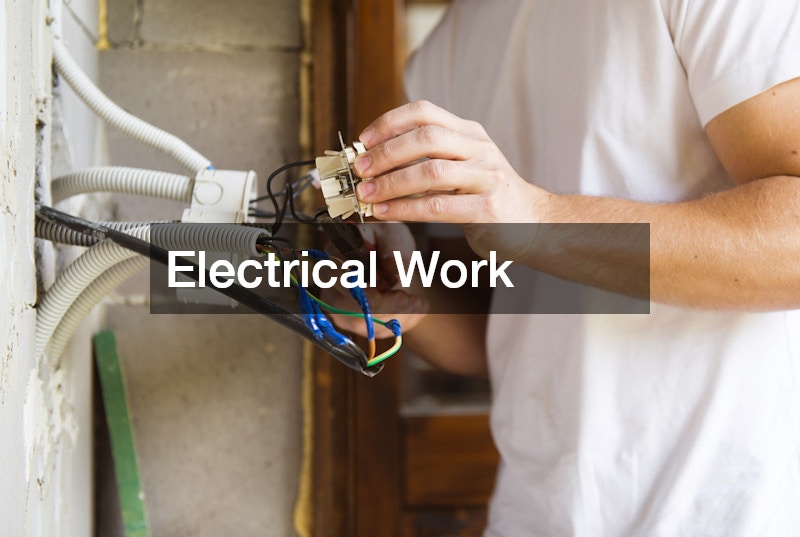Purchasing an existing business is a significant investment that requires careful planning and due diligence. There are numerous expenses involved, many of which may not be immediately apparent. This article outlines the top 10 expenses you need to consider when purchasing an existing business and its accompanying commercial property, providing a comprehensive guide to help you prepare for each cost.
An existing business comes with its own set of challenges and opportunities. Understanding the potential expenses can help you make an informed decision and avoid costly surprises. From moving costs to legal fees, we’ll explore the critical areas where you’ll need to invest your time and money.
Each section below dives into a specific area of expense, offering insights and tips to ensure you’re well-prepared for the financial commitments ahead. Whether you need to upgrade infrastructure or secure appropriate insurance, this guide will help you manage the various facets of owning an existing business.
Purchasing an existing business not only involves financial costs but also demands careful assessment of both current operations and long-term viability. Factoring in these ten key expenses will ensure you’re financially prepared and able to strategically navigate the transition, allowing for sustained growth and success.
1. Moving

One of the first expenses to consider when taking over an existing business is the cost of moving. This includes the transportation of office equipment, inventory, and any other assets to the new location. You might need to rent a utility trailer or hire a professional moving service to handle the heavy lifting.
Moving isn’t just about physical transportation; it also involves re-establishing operations in the new location. This can incur costs related to setting up utilities, phone lines, internet connections, and more. Ensuring a seamless transition will help minimize downtime and keep your business running smoothly.
Additionally, moving can affect your staff. You may need to cover expenses related to employee relocation or commuting. Planning for these costs upfront can help you manage your budget more effectively and maintain staff morale during the transition.
Beyond the immediate costs of relocation, there may also be hidden expenses, such as downtime while relocating, which could impact productivity. Addressing these potential losses and planning for a swift restart of operations can save the business from unnecessary financial strain during the move.
2. Roofing
The condition of the roof is a critical consideration when purchasing an existing business property. Roof repairs or replacements can be costly, especially if the roof decking is damaged. Before buying, ensure a thorough inspection is conducted to assess the roof’s condition.
If you discover issues with the roof decking, you’ll need to budget for repairs or a complete replacement. This can help prevent future problems such as leaks or structural damage. Engaging a professional roofing contractor will provide you with an accurate estimate of the costs involved.
In addition to roof decking, you might need to address other related issues, including insulation and ventilation. Proper installation can improve energy efficiency and reduce heating and cooling costs, making it a worthwhile investment for your existing business.
Long-term savings on energy bills can also come from investing in weatherproofing the roof. This can protect your business from extreme weather conditions, which may otherwise lead to future repair costs and operational interruptions that could negatively impact your bottom line.
3. Energy
Energy costs can be a significant expense for an existing business, especially if you rely on gas and propane heating services. It’s essential to evaluate the current energy infrastructure and identify any potential upgrades or replacements needed to ensure efficient operation.
Switching to more energy-efficient systems can reduce ongoing costs and contribute to a more sustainable business. For example, you might consider upgrading your heating systems to more modern, efficient models or investing in renewable energy sources.
Conducting an energy audit can help you pinpoint areas where you can save on energy costs. This can include improving insulation, sealing windows and doors, or implementing energy-efficient lighting and appliances. Investing in these upgrades can yield long-term savings for your existing business.
Moreover, many regions offer tax incentives or rebates for businesses that implement energy-efficient solutions. Exploring these opportunities can further offset the initial costs of upgrading your energy systems and contribute to long-term financial benefits for your business.
4. Insurance

Business insurance is a critical expense when purchasing an existing business. The right insurance policies can protect you from various risks, including property damage, liability claims, and employee-related issues. It’s essential to review the existing insurance coverage and determine if any adjustments or additional policies are needed.
Different types of business insurance to consider include general liability, property insurance, workers’ compensation, and business interruption coverage. Understanding the specific requirements of your business and industry will help you make informed decisions about the policies you need.
Working with an experienced insurance broker can help you navigate the complexities of business insurance. They can provide insights into potential risks, recommend appropriate coverage, and help you find the best rates for your existing business.
Additionally, underestimating or being underinsured can expose you to financial risks that could cripple your operations. Therefore, regular reviews and updates to your policies as your business evolves are crucial for ensuring comprehensive protection against unforeseen events.
5. Waste Removal
Efficient waste removal is essential for maintaining a clean and safe business environment. This includes regular trash collection, as well as specialized services such as recycling and hazardous waste disposal. Understanding your waste removal needs will help you choose the right services for your existing business.
Implementing a comprehensive recycling program can reduce your waste disposal costs and contribute to environmental sustainability. Many businesses are required to comply with specific recycling regulations, so it’s important to stay informed about local requirements and best practices.
Depending on your industry, you may need additional waste removal services for hazardous materials or specialized waste. Partnering with a reliable waste management provider can ensure that all your waste is handled safely and in compliance with regulations.
Taking an environmentally conscious approach to waste removal can also improve your business’s reputation. Customers and stakeholders increasingly value sustainability, and demonstrating eco-friendly waste practices can set your business apart in a competitive market.
6. Electrical Work

Electrical work is another critical consideration when purchasing an existing business. Outdated or faulty electrical systems can pose safety hazards and lead to costly repairs. Engaging a qualified electrical contractor to assess and upgrade your electrical infrastructure is essential for ensuring safe and efficient operations.
Upgrading your electrical systems may involve replacing wiring, installing new fixtures, or adding additional outlets and circuits. These improvements can enhance your business’s safety and functionality, supporting your operations and minimizing downtime.
In addition to safety considerations, modernizing your electrical systems can improve energy efficiency. Investing in energy-efficient lighting, appliances, and equipment can reduce your overall energy costs and contribute to a more sustainable business environment.
Furthermore, integrating smart electrical systems, such as automated lighting or energy monitoring tools, can provide long-term savings. These innovations not only optimize energy usage but also enhance the overall operational efficiency of your business.
7. Legal Assistance
Legal assistance is crucial when purchasing an existing business. A business contract outlines the terms and conditions of the purchase, protecting both the buyer and the seller. Engaging a qualified attorney to review and negotiate the contract is essential for ensuring a fair and legally sound transaction.
Beyond the initial purchase agreement, legal assistance may be needed for various other aspects of setting up and operating your business. This can include drafting employment contracts, negotiating leases, and ensuring compliance with local regulations.
Working with an experienced business attorney can help you navigate the complex legal landscape, avoid potential pitfalls, and protect your interests. Their expertise can provide valuable insights and support, allowing you to focus on growing and managing your existing business.
Moreover, having legal counsel readily available can safeguard you from potential lawsuits or contract disputes that might arise down the line. Proactive legal advice can be instrumental in steering your business clear of costly legal challenges.
8. Plumbing
Proper plumbing is essential for any business, and it’s important to assess the condition of the existing plumbing systems before purchasing a property. Issues such as leaks, clogs, or outdated fixtures can lead to costly repairs and disruptions. Investing in a thorough inspection by a qualified plumber can help identify potential problems.
If you discover issues with the plumbing, you may need to budget for repairs or upgrades. This could include replacing pipes, installing new fixtures, or upgrading the septic system. Septic system installation or repairs can be particularly costly, so it’s important to plan for these expenses.
In addition to addressing immediate concerns, investing in modern plumbing systems can improve efficiency and reduce water usage. Upgrading to low-flow fixtures and implementing water-saving practices can lower your utility costs and contribute to a more sustainable business operation.
Failure to address plumbing issues upfront can lead to water damage and costly repairs in the future. Therefore, ensuring proper plumbing infrastructure from the outset is essential to protect your property and maintain uninterrupted business operations.
9. Advertising

Effective advertising is essential for promoting your existing business and attracting new customers. One cost-effective way to advertise is through truck graphics, which can turn your company vehicles into mobile billboards. This form of advertising can increase your visibility and reach a wider audience.
In addition to truck graphics, consider other advertising strategies such as online marketing, print ads, and social media campaigns. Developing a comprehensive marketing plan can help you target the right audience and achieve your business goals.
Investing in professional design and printing services can enhance the effectiveness of your advertising efforts. High-quality graphics and materials can create a positive impression and strengthen your brand identity, contributing to the success of your existing business.
Consistency in advertising is key. Regularly updating your campaigns and exploring diverse platforms, such as influencer partnerships or community sponsorships, can help maintain your visibility and relevance in a dynamic marketplace.
10. Construction
Construction costs are a significant expense to consider when purchasing an existing business property. Whether you’re renovating the existing space or building new facilities, it’s important to budget for all aspects of the construction process. This includes labor, materials, permits, and construction waste disposal services.
Working with a reputable contractor can help ensure that your construction project is completed on time and within budget. They can provide expert guidance on design, materials, and cost-saving opportunities, helping you achieve your business goals while minimizing expenses.
In addition to traditional construction costs, you may need to invest in specialized services such as landscaping or paving. These services can enhance the appearance and functionality of your property, creating a positive first impression for customers and employees alike.
Unexpected costs often arise during construction projects, so it’s important to have a contingency plan in place. Setting aside a portion of your budget for unforeseen expenses can help you avoid financial strain and ensure the successful completion of your project.
Conclusion
Purchasing an existing business and its commercial property involves various expenses, from moving costs to construction fees. By understanding and planning for these ten key expenses, you can make an informed decision and set yourself up for success. Proper preparation ensures that you’re not only financially ready for the purchase but also equipped to handle the ongoing costs associated with owning and operating a business.
Additionally, it’s important to factor in potential future expenses that may arise as you integrate the new business into your operations. This could include upgrading technology, implementing new systems, or addressing unforeseen issues that may become apparent after the acquisition. Staying vigilant and adaptable will help you manage these challenges effectively and safeguard the long-term viability of your investment.
If you’re ready to take the next step and need help navigating the financial aspects of acquiring an existing business, consult with professionals who can guide you through the process. Financial advisors, legal experts, and industry consultants can provide valuable insights and help you develop a comprehensive strategy for managing both anticipated and unexpected expenses. Planning and proactive management are the keys to long-term success, ensuring that your business acquisition is a rewarding and profitable endeavor.

